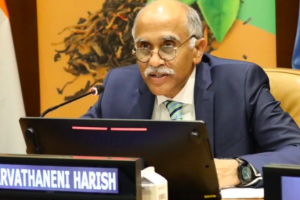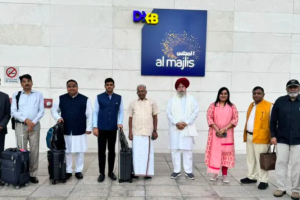In a big victory for India and reprieve for Kulbhushan Jadhav, the International Court of Justice (ICJ) on Wednesday ordered Pakistan not to execute him and asked it to reconsider the sentence awarded to him by a military court.
The world court, while rejecting all objections raised by Pakistan, directed it to grant consular access to Jadhav “without further delay”, while holding that it had “breached” the Vienna Convention by denying him this right.
Jadhav, a former Indian Navy officer, was kidnapped by Pakistani agencies on March 3, 2016, from Iran where he was in connection with his business.
Pakistan had claimed that Jadhav was arrested from its restive province of Balochistan and labeled him as a spy. It notified India about it through a press release on March 25, 2016, 22 days after he was picked up.
Jadhav, who hails from Powai in Mumbai and is 49 years old now, was subjected to an opaque military trial, which sentenced him to death on April 10, 2017, even as Pakistan government kept rejecting India”s repeated pleas for consular access.
The ICJ, which was moved by India on May 8, 2017, gave a detailed verdict on Wednesday, rejecting all the objections of Pakistan, including one unanimously on the admissibility of the case and also the claims by Islamabad that India had not provided the actual nationality of Jadhav.
In the judgement, the ICJ said it was satisfied that Jadhav was an Indian national and that the fact had been acknowledged by both Pakistan and India.
The court, in its ruling by 15-1, ordered “a continued stay of execution” on Jadhav, saying it “constitutes an indispensable condition for the effective review and reconsideration of the conviction and sentence” of the accused.
It said it “finds that the appropriate reparation in this case consists in the obligation of the Islamic Republic of Pakistan to provide, by the means of its own choosing, effective review and reconsideration of the conviction and sentence of Mr. Kulbhushan Sudhir Jadhav, so as to ensure that full weight is given to the effect of the violation of the rights set forth” of the Vienna Convention on consular access.
Earlier on May 18 this year, the world court had ordered a stay on Jadhav”s execution till the final verdict was delivered in the case.
The court, in its verdict on Wednesday, said it found that Pakistan deprived India of the “right to communicate with and have access” to Jadhav to “visit him in detention and to arrange for his legal representation, and thereby breached the obligations incumbent upon it under the Vienna Convention on Consular Relations.
The world court said that by not notifying the appropriate consular post of India in Pakistan without delay of Jadhav”s detention, India was deprived of the right to render assistance provided for by the Vienna Convention to the individual concerned.
Pakistan “breached the obligations incumbent upon it” under the Vienna Convention on Consular Relations, it observed.
The court said Pakistan is “under an obligation” to inform Jadhav “without further delay of his rights and to provide Indian consular officers access to him” in accordance with the Vienna Convention on Consular Relations.
India, while moving the world court on May 8, 2017, had rubbished Pakistan”s claim that Jadhav was a “spy” and sought immediate suspension of the death sentence awarded to him and his release.
It had sought direction to the Pakistan government to annul the decision of the military court, failing which the ICJ should declare the sentence “illegal”, being violative of the international law and treaty rights.
India had said Pakistan had resorted to a “brazen defiance” of the international law and provisions of the Vienna Convention which guarantee certain civil and political rights to a prisoner.
It contended that it was not informed of his detention until long and that Pakistan also failed to inform the accused of his rights.
It further told the ICJ, the principal judicial organ of the United Nations, that Pakistan, in violation of the Vienna Convention, denied India its right of consular access to Jadhav despite its repeated requests.
India told the ICJ that it learned about the death sentence against Jadhav from a press release.
On May 18, 2017, the ICJ asked Pakistan to “take all measures at its disposal” to ensure that Jadhav is not executed, pending its final judgment in the case.
In its order indicating provisional measures, which was adopted unanimously, the ICJ also stated that the Pakistan government shall inform it of all measures taken in implementation of that order.
Later in December that year, Pakistan allowed Jadhav”s mother and wife to meet him in a Pakistani jail, an event which India said “lacked any credibility”.
India said the overall atmosphere of the meeting was “intimidating” as Jadhav”s mother and wife were not allowed to speak to him in their mother tongue Marathi and that they were forced to change their clothes. The wife”s shoes were not returned.
India has maintained that Jadhav was tortured in the Pakistani jail and an alleged “confession” was extracted from him through coercion.
Senior advocate Harish Salve, representing India during a public hearing in the case in the ICJ, said Pakistan had no clinching evidence against Jadhav.
























